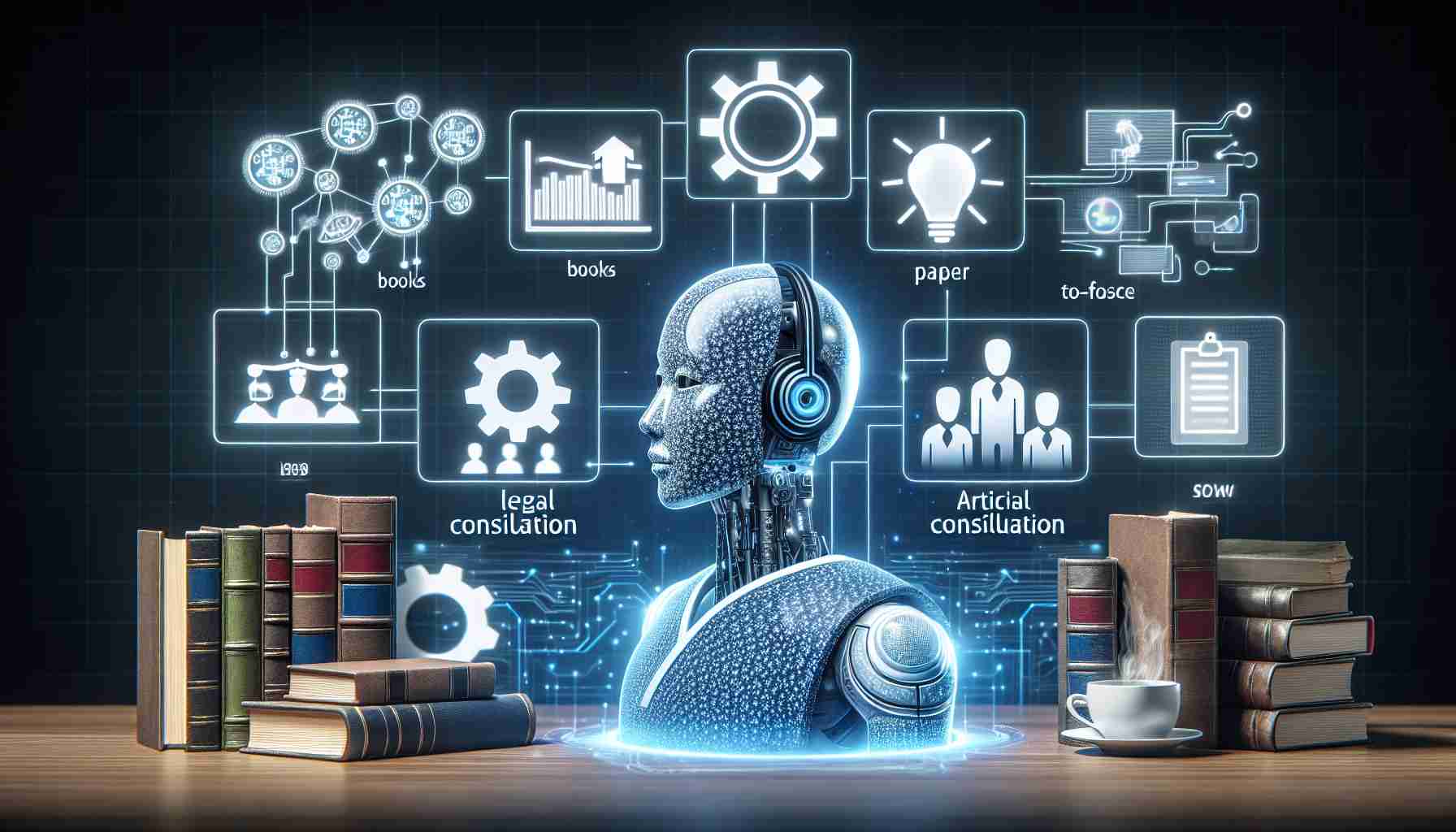Innovation through AI in the Legal Field
The legal domain is not exempt from the burgeoning wave of generative artificial intelligence (AI) sparked by the introduction of ChatGPT in 2022. Leading in the arena of legal technology, LexisNexis from the US has developed a model that delivers legal explanations, case law and article search functionalities, and document drafting services by learning various nations’ legal data and languages. March marked the release of ‘Lexis Plus AI’ by LexisNexis, a generative AI-based solution now available in South Korea.
Domestic Law Firms Adopt AI-powered Legal Consulting
A notable Korean law firm debuted its homegrown legal consulting AI chatbot recently. Over nine months, attorneys at the firm created around 10,000 question-answer pairs for AI training, enabling the bot to accurately respond to 88 out of 100 questions it receives. This innovation allows the public to quickly access legal information and enhances the productivity and marketing reach of the law firm.
Ethical and Legal Discussions Around AI in Legal Sector
Despite its advantages, there have been concerns about whether the AI service could be in violation of legal advertising regulations. The firm argued that the nature of the service is not legal advice per se, and adjusted its official naming to ‘legal Q&A’ to address these concerns.
Furthermore, there’s active debate about the appropriate role of AI in legal contexts. The Stanford Institute for Human-Centered Artificial Intelligence has recognized AI’s potential to increase access to justice, assist legal research, and improve judicial rulings. However, an over-reliance on AI for legal decisions might challenge the integrity of the legal system.
Embracing AI in South Korea’s Judicial System
The judicial system in South Korea, like others, is facing the need to adapt to AI’s increasing role. There’s a call for flexible legal interpretation and legislative improvements to maximize AI’s utility in law, with the understanding that AI can significantly boost legal professionals’ productivity and enhance public access to justice. The integration of AI into South Korea’s legal fold is seen not as a job replacement issue but as a transformative step for the legal profession.
Most Important Questions and Answers:
1. How does AI improve legal consultation in South Korea?
AI improves legal consultation in South Korea by providing swift access to legal information, enhancing productivity among legal professionals, and expanding the marketing reach for law firms with automated Q&A services for routine inquiries.
2. What potential legal and ethical challenges does AI pose to the legal sector?
AI in the legal sector might face challenges regarding the adherence to legal advertising regulations and could raise ethical concerns about the nature and quality of legal advice. There is also a debate on the potential impact of AI on the integrity of legal decision-making.
3. Is AI intended to replace legal jobs in South Korea?
AI is not seen predominantly as a job replacement threat in South Korea’s legal sector, but rather as an enabler of transformation, designed to augment the capabilities of legal professionals and improve the delivery of legal services.
Key Challenges or Controversies:
– Compliance with Legal Advertising Regulations: Legal services powered by AI must navigate stringent advertising rules to avoid being classified as unauthorized legal advice providers.
– Ethical Use of AI: Implementing AI in the legal sector raises ethical concerns regarding the potential for AI to influence legal decisions and the need to maintain the integrity of the legal process.
– Data Privacy and Security: The use of AI necessitates stringent data protection measures to safeguard the sensitive information involved in legal consultations.
Advantages:
– Accessibility: AI improves public access to legal consultation, particularly to those who may not be able to afford traditional legal services.
– Efficiency: AI can handle routine tasks and analysis much faster than humans, thereby increasing the efficiency of legal services.
– Consistency: AI systems can provide consistent responses to common legal inquiries, ensuring uniformity in the information disseminated.
Disadvantages:
– Limitation in Understanding: AI may lack the nuanced understanding required for complex legal issues and may not replace the strategic thinking a legal professional provides.
– Job Disruption: While not seen as a replacement, AI could still disrupt certain types of legal work, potentially leading to job realignment within the sector.
– Lack of Human Judgment: AI lacks human empathy and judgment, which are often critical in providing tailored legal advice and decision-making.
Suggestions for further reading on AI in the legal sector in the broader context are available through the main domains of reputable organizations such as the Stanford University, which houses the Institute for Human-Centered Artificial Intelligence, and commercial legal technology providers like LexisNexis. Always be sure to evaluate the credibility of sources by checking their domain authority and the freshness of the content provided.

